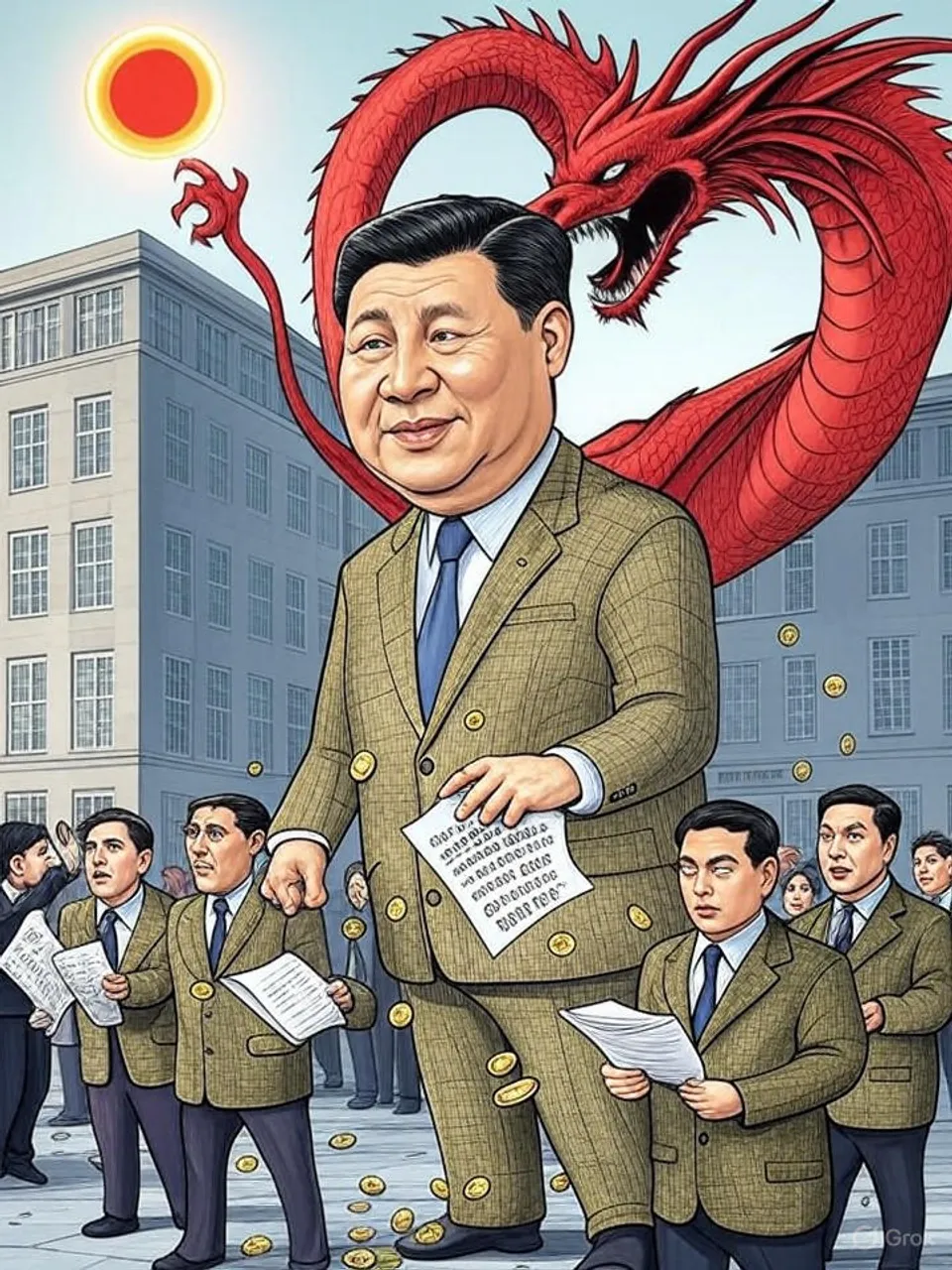Beijing's Threats Eclipse Sheffield's Scholarship

£3.8 Million in Fees Traded for Silenced Uyghur Research
Documents expose how Chinese intimidation forced a UK university to halt human rights studies, prioritizing student revenue over academic integrity. This vulnerability highlights systemic weaknesses in Britain's education sector amid foreign dependencies.
Commentary Based On
BBC News
China intimidated UK university to ditch human rights research, documents show
Sheffield Hallam University suspended human rights research on Uyghur forced labor after Chinese state agents threatened its staff and blocked its websites, documents confirm. Officials cited the need to safeguard £3.8 million in annual revenue from Chinese and Hong Kong students. Academic freedom yielded to financial survival.
The campaign began in 2022. China’s foreign ministry denounced the university’s Helena Kennedy Centre as part of an “anti-China rhetoric” vanguard. Within months, access to Sheffield Hallam’s enrollment and course sites vanished inside China, stranding prospective students and slashing recruitment numbers.
By April 2024, escalation arrived in person. Three officers from China’s National Security Service interrogated a local staff member for two hours at the university’s Beijing office. They demanded an end to Professor Laura Murphy’s investigations into supply chains linked to Xinjiang’s cotton, solar panels, and car parts.
Internal emails captured the bind. One from July 2024 declared retaining Chinese business and publishing the research “untenable bedfellows.” A May 2024 note warned that Murphy’s work risked the university’s entire operations in China and Hong Kong.
Murphy’s team had produced four reports since 2021, tracing forced labor inputs to Western markets. Funding came from sources including the UK Foreign Office and US agencies, which China labeled as biased. Beijing denies any abuses, calling the allegations “fake” and “disinformation.”
The university’s pivot came in late 2024. It withheld publication of a final report amid Chinese pressure and a defamation lawsuit. By early 2025, administrators barred Murphy from continuing her supply chain studies, prompting her legal challenge.
Documents from her subject access request exposed the deal. The university had negotiated directly with Chinese intelligence to exchange her academic freedom for market access. Murphy described it as an explicit trade-off for student income.
Sheffield Hallam later reversed course. After her lawsuit, it apologized and permitted resumption of the work, blaming a lack of professional indemnity insurance. The university now pledges support for free speech within legal bounds.
The University and College Union condemned the episode. General Secretary Jo Grady highlighted the censorship risk to all academics. She demanded safeguards against foreign overreach.
Government action followed disclosure. Then-Foreign Secretary David Lammy warned his Chinese counterpart against suppressing UK universities. Officials also raised the issue with China’s top education minister.
A spokesperson reiterated intolerance for foreign intimidation. Yet the response came after two years of pressure, once damage was done. Recruitment had already declined sharply for 2023-24, with worse projected.
This incident fits a pattern in UK higher education. Chinese students contributed £5.4 billion to the economy in 2022-23, per Universities UK data. Institutions rely on them for 20-30% of international fees, creating leverage points for Beijing.
Dependence breeds caution. Other cases include Oxford and Cambridge scholars self-censoring on Taiwan or Hong Kong to avoid visa denials. A 2023 Policy Exchange report found 46 instances of Chinese influence on UK campuses since 2015.
Academic freedom rankings reflect the toll. The UK’s score fell from 22nd to 32nd globally between 2020 and 2024, per Academic Freedom Index data. Foreign funding ties, especially from China, correlate with declining independence.
Cross-party governments share blame. Labour’s 1997-2010 expansion of international recruitment set the revenue model. Conservatives from 2010 added visa incentives without safeguards. Both ignored diversification warnings from bodies like the Intelligence and Security Committee.
The Foreign Office funded Murphy’s work yet failed to shield it. This gap reveals institutional silos: education chases fees while diplomacy reacts post-harm. No overarching policy mandates resilience against economic coercion.
Ordinary citizens bear indirect costs. Taxpayers fund universities via £2.5 billion in annual teaching grants, subsidizing a system now vulnerable to foreign sway. Eroded research integrity weakens global standing in human rights advocacy.
Broader sovereignty frays. When universities negotiate with intelligence services, they mirror corporate concessions to autocrats. This normalizes external vetoes over domestic inquiry, a step from intellectual autonomy toward managed discourse.
The case underscores a quiet capitulation. UK higher education, once a beacon of unfettered pursuit, now weighs truth against tuition ledgers. Beijing’s success here signals deeper fractures in national resolve, where economic needs eclipse principled defense.
Commentary based on China intimidated UK university to ditch human rights research, documents show at BBC News.